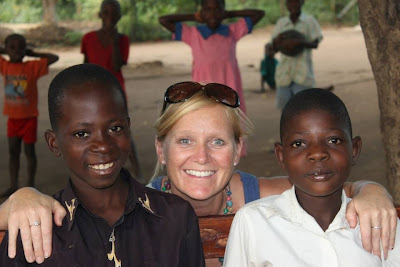Does it not amaze you as it does me that Turn the Tide feeds, educates and provides basic household, medical and schooling necessities for 39 orphans and 11 widows for three months for just GBP379.61 ($US577.83)?
I think I spend more than that on my 12 family members just for Christmas. And that's not food! That's extras. Cards, wrapping, gifts they may or may not even like!
But in Malawi, this same amount is making 39 children into healthy, educated, contributing world citizens.
We had to make some changes with the administration of food and necessities for our kids this year. After much prayer, a pretty terrific team of people from villages near Sorgen (the village our kids are from) agreed to take over the management on the ground. This team had already been working together for a while, going from village to village evangelizing, helping those in need and loving those needing loving.
Led by a man named Gift (his story is as meaningful as his name), who was himself once an orphan, our kids are now being cared for better than ever. I say the word "kids" ..... and yet this year, Christopher, the boy who kind of started this whole story, finished high school and will be starting university. Am I the only one amazed?
I was in Malawi this summer, and it was so terrific to see everyone. I could just eat up every one of these kids. They make me so proud, and I am so grateful, truly grateful to be part of this ministry.
And yet, to be honest, not every story is going the way I would write it. I rode in a rattle-trap bus for hours to the hospital with one, as she recovered from a serious infection after childbirth. Yes, childbirth. A child went through childbirth. In our world, 16 is a child. In theirs, a 16 year old is ..... ready for the business of being a woman. My heart breaks. The journey for a poor girl in a poor village in Africa is more complicated than we Westerners can comprehend.
Among the new team working with our kids on the ground is a fantastic woman named Esnet. She is educated, articulate, a mother herself and passionate about empowering Malawi's women and girls. Esnet assured me she will visit with Chikonde often and help her with this new task of raising a daughter.
Thanks to you and your support in this work, some pretty great kids are getting a pretty great chance to live life free from poverty.
Michelle








































